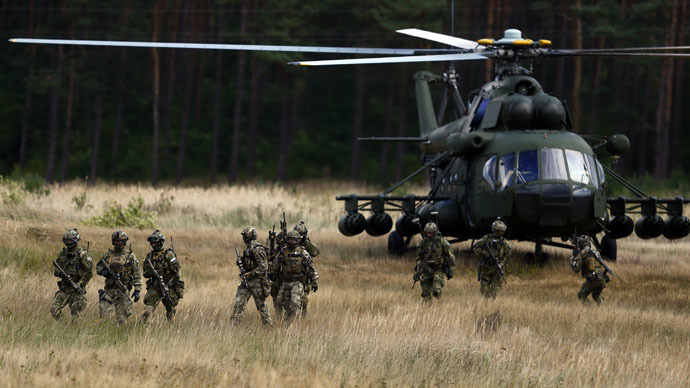The future of arms control in Europe

For many years Russia has been undertaking every possible step to maintain the viability of the conventional arms control regime in Europe.
We have initiated negotiations on the adaptation of the Treaty on Conventional Armed Forces in Europe (CFE Treaty), and later ratified an Agreement on its Adaptation.
Unfortunately, NATO preferred to bypass the provisions of the CFE Treaty by expanding its infrastructure closer to Russian borders, preventing under petty pretexts the entry into force of the Adaptation Agreement. This has been done despite our repeated warnings about the current problems in European security, and eventually led to an inevitable result - the suspension of implementation of the “old” CFE Treaty by the Russian Federation in 2007.
Then the Russian side, taking into account requests of a number of parties to the CFE Treaty, decided to continue to participate in the Joint Consultative Group (JCG) of the CFE Treaty. Indeed, at that time we hoped that efforts would be made to restore an effective conventional arms control regime on the continent.
However, these hopes did not come true. Consultations on the issue have been moved outside the JCG. They were conducted in the Russia-US format although the Treaty has always been described as a cornerstone of security for the whole of Europe. West European NATO members essentially stepped back and farmed everything out to Russia and the US. Unfortunately, while they seemed to value the Treaty, they de facto recognized that their role in salvaging the conventional arms control regime in Europe is close to zero.
In these circumstances, the continued participation in meetings of the JCG has become meaningless from the political and practical points of view and unnecessarily costly. Considering the above, Russia has decided to suspend its participation in the JCG as of March 11. Thus, the suspension of our participation in the CFE Treaty has become complete.
We have to acknowledge that the CFE Treaty is absolutely out of sync with today’s realities. It is totally anachronistic. This Treaty was worked out when the Soviet Union and the Warsaw Pact were still around, and equal ceilings for each bloc (NATO and the Warsaw Pact) were set on key armaments. Under the Treaty, we were the representatives of the same group with East European countries, which are now NATO members, which is an utter political nonsense.
But the suspension of our participation in the Treaty does not mean a refusal to continue and deepen a dialogue on conventional arms control in Europe. We are willing to work together on a new conventional arms control, which meets the interests of both Russia and other European countries and accurately reflects new realities in Europe and first of all the expansion of NATO. The Russian initiative of a European Security Treaty remains a good starting point.
Unfortunately, the very existence of dividing lines on the continent, like laws of physics, has a logic of its own and dooms ideas of a genuine collective security system in Europe. The present crisis in Ukraine laid this reality bare. That is why further militarization of international relations in Europe without addressing “big issues” of regional security architecture will only bring us back to square one, i.e. back in time to the moment when the Cold War ended. One of the signs of that is NATO’s return to territorial defense after two decades of expansion.
The statements, views and opinions expressed in this column are solely those of the author and do not necessarily represent those of RT.
The statements, views and opinions expressed in this column are solely those of the author and do not necessarily represent those of RT.












